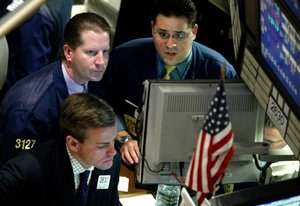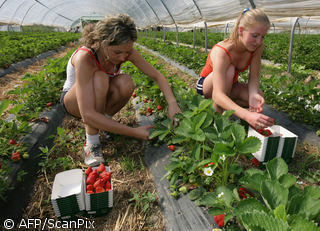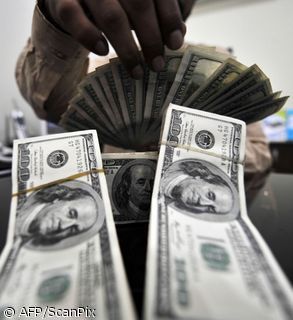The dollar rose against the euro and yen on Wednesday in erratic trade with markets uncertain how a dialogue on currencies will turn out when President George W Bush visits Asia later this week
Published:
16 October 2003 y., Thursday
The dollar hit one-week highs on Tuesday, buoyed by optimism on US corporate earnings. But it then erased all the gains as US stocks made a lacklustre start and after Bush said markets should determine currency rates.
By Wednesday’s mid-European session it was on a firmer footing again, rising a third of a per cent against the euro and yen.
Bush also said he would use his trip to Asia to press China and Japan to stop trying to weaken their currencies.
He attends a summit in Bangkok after visiting Tokyo later this week. "Bush is so public about his desire to ask Asian countries to let their currencies rise. If he comes out empty handed it would be a major loss," said Mary Davis, global currency strategist at Credit Suisse First Boston.
By 1130 GMT, the dollar was up a third of a per cent on the day at $1.1684, after a rise of more than one cent on Tuesday which then caved in during US trading hours. Against the yen it was also up a third of a per cent at 109.30 having climbed more than one yen above 110 on Tuesday.
Šaltinis:
jang.com.pk
Copying, publishing, announcing any information from the News.lt portal without written permission of News.lt editorial office is prohibited.
The most popular articles
 In another move to strengthen the financial system, the Commission is proposing controls on credit rating agencies - private companies that evaluate financial risks for investors.
more »
In another move to strengthen the financial system, the Commission is proposing controls on credit rating agencies - private companies that evaluate financial risks for investors.
more »
 Monday 10 November saw a large report land on the desk of MEPs in the Budgetary Control Committee.
more »
Monday 10 November saw a large report land on the desk of MEPs in the Budgetary Control Committee.
more »
 EU wants G20 meeting to pave the way for reform of the international financial system.
more »
EU wants G20 meeting to pave the way for reform of the international financial system.
more »
 New Yorkers reflect on the election of Barack Obama as the 44th President of the United States.
more »
New Yorkers reflect on the election of Barack Obama as the 44th President of the United States.
more »
 The ability of the EU's common agriculture policy (CAP) to cope with the challenges of affordable food and climate change was discussed in Brussels 3-4 November.
more »
The ability of the EU's common agriculture policy (CAP) to cope with the challenges of affordable food and climate change was discussed in Brussels 3-4 November.
more »
 European Union economic growth should be 1.4% in 2008, half what it was in 2007, and drop even more sharply in 2009 to 0.2% before recovering gradually to 1.1% in 2010 (1.2%, 0.1% and 0.9%, respectively, for the euro area).
more »
European Union economic growth should be 1.4% in 2008, half what it was in 2007, and drop even more sharply in 2009 to 0.2% before recovering gradually to 1.1% in 2010 (1.2%, 0.1% and 0.9%, respectively, for the euro area).
more »
 There are an estimated 4-8 million immigrants working illegally in the European Union.
more »
There are an estimated 4-8 million immigrants working illegally in the European Union.
more »
 Hit by economic turmoil and the sharp global downturn, growth in the EU slows almost to a halt.
more »
Hit by economic turmoil and the sharp global downturn, growth in the EU slows almost to a halt.
more »
 The top priority is to cushion the impact of the financial crisis on jobs, purchasing power and prosperity of EU citizens.
more »
The top priority is to cushion the impact of the financial crisis on jobs, purchasing power and prosperity of EU citizens.
more »
 The International Monetary Fund has approved short-term financing to help emerging market economies weather the global financial storm.
more »
The International Monetary Fund has approved short-term financing to help emerging market economies weather the global financial storm.
more »